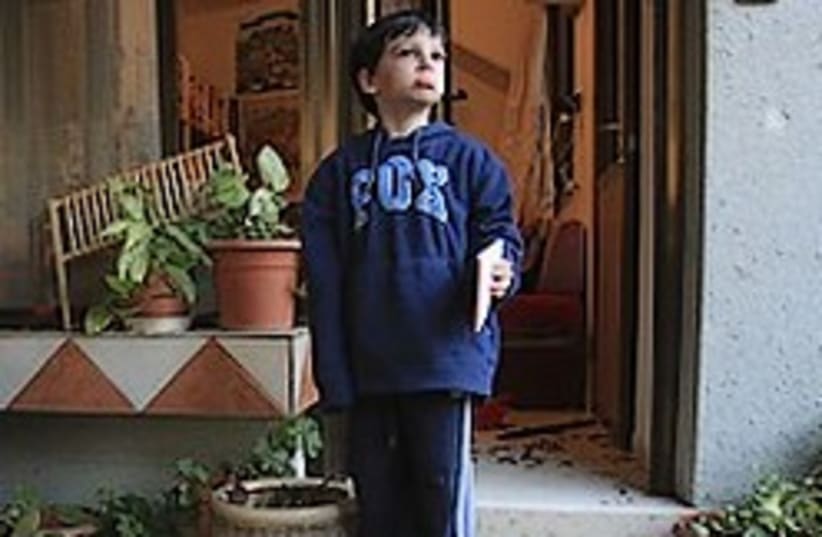Living with the sounds of war in Nahal Oz
"She said, 'There are mortars falling.' I told her, 'Go to a safe room with the girls."
At 3:15 p.m. on Wednesday, the southern region's chief paramedic, Tiger Avraham, was preparing for the emergency wartime drill that had been scheduled for late afternoon in Sderot when he got a hysterical call from the babysitter, who was home with two of his four young children at Kibbutz Nahal Oz.
"She said, 'There are mortars falling.' I told her, 'Go to a safe room with the girls," Avraham said.
The phone call was not part of the drill, but rather his first sign that he was about to head to a real-life emergency situation.
Almost immediately afterward, he was dispatched to the border to help following an armed infiltration by four Palestinians from Gaza. Half his crew was sent to Kibbutz Nahal Oz, only a short distance away from the infiltration point, because the IDF feared that additional Palestinians might have escaped into Israel.
"During the drive, I imagined that someone was trying to kidnap my children," he said.
As he spoke, he stood outside his home, still in his uniform, fielding phone calls. His narrative was interrupted at least twice by mortar shells that fell in the distance.
He described for The Jerusalem Post how he had arrived at the scene of the fuel depot by the border and seen two men in a car.
One was sitting, and the other was lying on the ground, he said. Neither of the men moved. Once he got close, he saw that both bodies were riddled with bullets.
"We pronounced them dead [immediately]," he said of the two men who had worked for the Dor Alon fuel company, which provides needed fuel to Gaza.
As Avraham worked at the attack area, Larry Taranto, the kibbutz's business CEO, had just arrived back from Tel Aviv, about half an hour after the attack started.
Initially, he said, some 15 mortar shells fell in the area, of which about eight actually landed in the kibbutz. One fell in a parking lot and damaged a number of cars, he said. A second one shattered the windows of a home.
Immediately at the start of the attack, he said, an emergency beeper and SMS signal was sent to all kibbutz members to get inside their homes. They were ordered to stay there for about two hours, and the IDF closed the road to the kibbutz. Taranto had to drive through a back route just to get in.
"Every half an hour or so, a mortar fell," he said.
But the mortars did not wake high school student Ron Tuvia, who had fallen asleep on the sofa after school.
He grinned as he described how he had simply slept through it all. Upon reflection, he said, he did hear noises through his sleep, but what bothered him was his beeper, which kept going off.
Eventually, he reached for the beeper, saw that there had been an infiltration, turned it off and went back to sleep.
His parents were less calm. As part of the kibbutz's emergency team, they were in the administration building fielding phone calls from worried kibbutz members who sought more news - but they had a concern of their own. They didn't know where their son was.
When he failed to answer his phone, Tuvia's father, Eitan, walked over to the house to find him. He woke his son and made him head into the safe room in their home, which was also his bedroom.
A number of other kibbutz members were less blasé and said the infiltration was frightening, but that the mortar shells had become part of their normal landscape.
"We live with the sounds of war," said Eitan Tuvia.
With a safe room in each kibbutz home, the residents were less fearful than those of other communities in the area that lack adequate shelter, said his wife Diganit.
But they hear all the military sounds of the conflict between Israel and Gaza.
"Instead of birds, we see helicopters," said Eitan as he sat in his living room.
But strange as it is, he added, their lives were otherwise very normal. Both he and his wife planned to go to work the next morning as usual.
Once the attack was over, their son, who plays guitar, headed to practice with his band.

